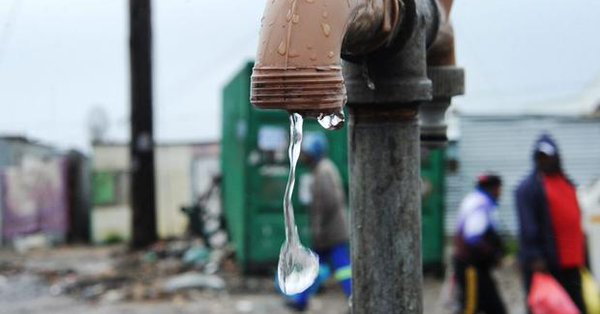Need to explore new solutions to address SA's water challenges: WASH Min
The Minister of Water and Sanitation, Gugile Nkwinti, has lamented the fact that despite so many innovators in the sector, South Africa was still faced myriad challenges.

- Country:
- South Africa
Water and sanitation industry players have been urged to tap into new local technologies and solutions that will address the service delivery challenges that plague the sector.
The Minister of Water and Sanitation, Gugile Nkwinti, has lamented the fact that despite so many innovators in the sector, South Africa was still faced myriad challenges.
“We need to look at new ways of providing the services that we are responsible for, thus the need for this interactive session with this august group of innovators [so we can] be informed of and find out what new technologies and thinking are on the market to assist this beautiful country to resolve its delivery challenges,” the Minister said on Saturday.
Nkwinti was addressing about 450 delegates, who included sector leaders, experts, academics and innovators, during the Ministerial Interactive Session in Boksburg.
The session is Nkwinti’s response to a number of sector stakeholders and innovators who have inundated his office with offers of solutions to challenges in the sector.
The session ensured that the sector is exposed to new local technologies and solutions to ensure that it deals with challenges decisively.
Nkwinti said the country was faced with a serious challenge of capacity. He highlighted the spillages in municipalities as examples of a number of critical problems that required attention and innovation.
“Our Waste Water Treatment Works (WWTW) do not have the capacity to cope with the developments that are taking place, hence the question is ‘what is it that technology can do to address these and other problems that we face?’ We have to work together to find innovative solutions,” Nkwinti said.
Washington Nyabeze, a well-renowned researcher in the water industry, identified several problems that were bottlenecks to the delivery of water and sanitation by the government.
He advised the department to make water accessible to the poor by making it cheap.
One of the main problems that plague South Africa is the pollution of water. Nyabeze called for the prosecution and imprisonment of culprits.
He said the sanitation problems faced by the country could be addressed by the decolonisation of the mindset and a speedy movement towards resilience.
The department must accelerate the establishment of water catchment management agencies to address water issues at the local level.
“It is unacceptable that 20 years on, we only have two water catchment management institutions”, Nyabeze said.
The department’s Deputy Director-General of Special and Strategic Projects, Trevor Balzer, presented the National Water and Sanitation Master Plan that will address the water country’s water challenges by 2030 and beyond.
The plan has been approved by Cabinet and it is in the process of being addressed through Parliament.
Balzer said there were three million South Africans who still did not have access to drinking water and 14% who lacked proper sanitation.
He said the agriculture industry used 61% of water for commercial use and irrigation, while municipalities used 27%. South Africa lost about 50% of its wetlands and the state of rivers is appalling, Balzer said.
Nkwinti said the session as an opportunity to open doors for new ideas to come forth, as well as to foster collaboration within the sector for the good of the country.
(With Inputs from South African Government Press Release )










